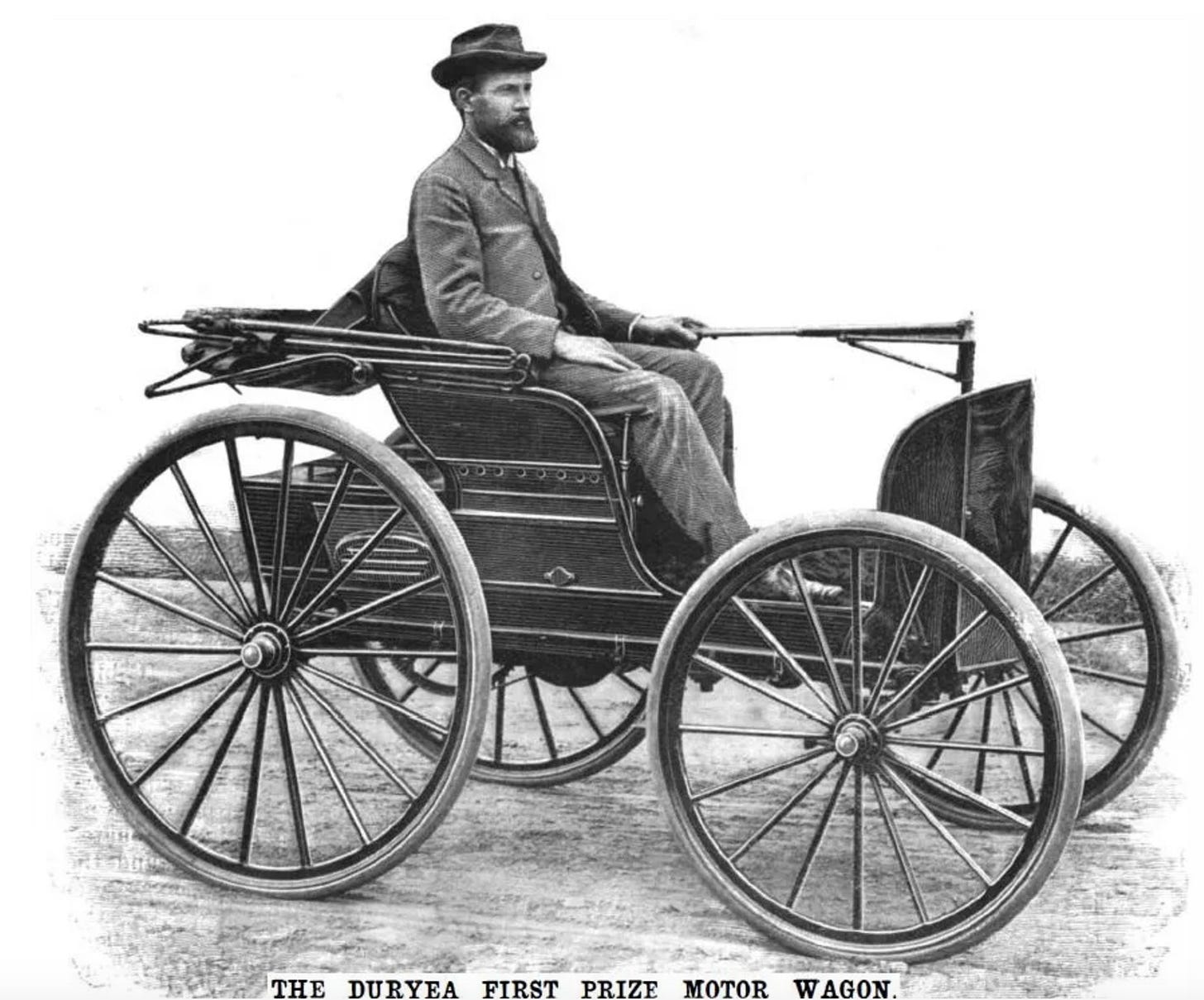Unruly History in the News #79
Happy Thanksgiving to everyone who celebrates! Happy sales weekend to everyone else!
Hey everyone,
Whew—Ph.D. applications are finally done, which means my free time is my own again. Hopefully life—and my schedule—will be returning to normal now.
Hope you all had a wonderful Thanksgiving, if you’re in the US. If not, I hope you had a wonderful week! Without further ado, here is this week’s history acting unruly in the news…
Here’s how the annual turkey pardoning by the US President became a tradition.
Behind an unused door in the National Library of Scotland was a forgotten street. Now that it’s been rediscovered, it shows us a little of what life was like in Edinburgh in the early 19th century.
The long, long history of the United States ignoring the very international laws the country created.
A few years ago, a young boy found a rare Neanderthal-made hand axe on a beach in Sussex. Now it’s in the collection of the nearby Worthing Museum.
A more than 2000-year-old fig was found in Dublin, which changes what we know about ancient trade into Ireland.
Speaking of rare finds: A 500-year-old bronze cannon brought to the Western Hemisphere by conquistador Francisco Vázquez de Coronado was found in an adobe structure in Arizona.
In Belize, ancient hunter-gatherers came up with an ingenious solution to trap fish during a drought that struck the region 4,000 years ago.
For the first time in Anatolian history, a sacred room dedicated to the goddess Kubaba has been found!
Interested in learning about queen Kubaba? Check out my episode on her!
Did entertainment destroy public discourse? Frankly, the debate has been raging for centuries, but this is an interesting entry into the void.
In creepy, murdery history mysteries…
What do you know about the 1986 Lake Nyos disaster?

Dead cattle kileld by the Lake Nyos disaster. Source: US Geological Survey. Why was the Aztec Death Whistle so terrifying? Neuroscientists are looking into it.
Why are 123 people buried in a mass grave beneath Leicester Cathedral? The grave dates to the 12th century and there’s seemingly no explanation for how so many people died in such a short amount of time.
Grover Cleveland is the only other US President to win, lose, and win again in American history. What does his second term foreshadow for Trump’s?
Carhartts and other work jackets became hugely fashionable in the last few years. The BBC is asking—is this appropriation?
Fan of Green Street Hooligans? You’ll love learning by the superfans of ancient gladiators who collapsed entire theatres in their violent devotion.
Speaking of gladiators, an ancient Roman theatre ticket was uncovered during excavations of the ancient city of Prusias Ad Hypium.
Rare silver earwax scoops found in Norfolk over the summer tell us a little more about the hygiene practices of 14th-century nobility.
Everyone needs good publicity, even young countries. Here’s how America was sold to Americans.
The first US automobile race was in November 1895. It involved accidents, snowbanks, and cars traveling at the terrifying speed of 7 mph.

The winner out of the six automobiles in the first ever US race. Source: Wikimedia Commons. The Great Cholula Pyrmaid in Mexico is the largest pyramid in the world (Giza’s is the tallest.) Ironically, people thought it was a regular old hill for centuries.
Alongside the loss of thousands of lives, Gaza’s cultural heritage is being devastated by the genocide. Here’s how the damage is being documented.
This 300-carat diamond necklace is linked to a scandal involving Marie Antoinette. It was just auctioned for nearly $5 million USD.
If you’ve got a spare $375,000, a rare first-edition of Machiavelli’s notorious political text The Prince is up for auction.
Out of your budget? Mine too, lol. Here’s a reasonably priced copy.
Notre Dame’s bells have been blessed as the Parisian cathedral prepares to reopen after the devastating fire that closed it five years ago.
1.5-million-year-old footprints uncovered in Kenya reveal that two species of humans lived alongside each other.





I feel like all these headlines could be a hook to a historical fiction novel :)